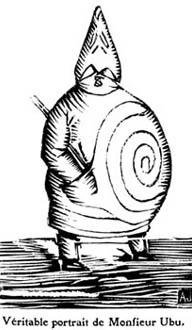User Login |
Notes for Some (Nominally) Awake by Julie Ezelle Patton reviewed by WillNotes for Some (Nominally) Awake is the only published work by Julie Patton, according to Brenda Ijima, the publisher. We've heard that Patton, often billed in bios as a performance poet, has very precise ideas of what a printed text should be, and is unwavering with publishers, yet said to us directly that she writes at the measure of the book, which seems to me as though she needs to establish the physical existence of her texts as books (and as far as I'm reading her here, she gives up the position of performer to the reader). It is a heavily directed performance, if that is how a reader chooses to read the vast visual shifts in spacing, size and fontshape that take place throughout the text. One consistency is that the text is only printed on the right pages, or the fronts if one is viewing this as a sort of notebook. The book is bound, sewn through with a red ribbon as to create a spine, on the side, you turn the pages in the expected way, if you're used to reading from left to right, but the book still feels quite alien. The cover is a rendering of a collage by Brenda Ijima in shades of red. It is roughly an eight inch square, and the paper is thin and translucent. To return to a derailed train of thought, it is clear that this book, as opposed to presumably all of Patton's other poetry, is meant to be in the public world, and contribute to a history of literature. The content fits, considering as it is a book length ode to Amiri Baraka that meditates upon the phonemes which construct his names (Everett LeRoi Jones, Baraka's given name, is also used) as a springing point for history and meaning to leap (at the reader) from. Almost every word goes through an orthographical or phonemic alteration to propose dispositions imbedded in (written?) language: America becomes both Ha!merica and Americaucasian. A book of few subtleties, at least as far as wordplay is concerned. A particularly bitter section of the book is a direct cut and paste from an associated press article from May 2006 about a black bear that was repeatedly shot by police in urban Newark for adopting an 'aggressive position' while being tranquilized by a biologist. The story's placement seems to ask for comparison of this police action with the recent Sean Bell shooting, and other like events that have occurred in New York over the past ten years. The associated press article ends with a reference to 'zero-tolerance' policies towards bears in other towns in New Jersey.
categories [ Text Reviews ]
login or register to post comments | printer friendly version
|
